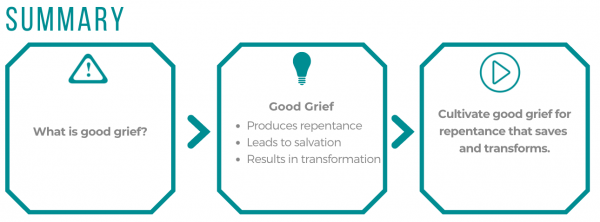 INTRODUCTION
INTRODUCTION
We’re living in a culture of death:
Murder
- Homicides increased 22% to 19,000 in 2020.
- An average of 7,000 black Americans were murdered every year between 2010 and 2019.
- In 2020, 9,941 black Americans were murdered a 43% increase on the 10 year average.
- In the same year 7,043 white people were murdered.
- This year alone (2022) there have been over 140 mass shootings, and 5 mass murders.
- This past week a 61-year-old woman became the 100th murder victim in Baltimore in 2022.
Suicide
- Suicide claims the lives of over 47,500 people in the US every year (@2.5 x murder rate)
- In 2019, @ 3.5 million Americans planned a suicide with 1.4 million suicide attempts
- More than 1 in 4 girls seriously contemplated attempting suicide during the pandemic (2 x boys)
- 20% of High School students seriously considered attempting suicide, and 9.0% had attempted
Abortion
- According to WHO, there are an estimated 40-50 million abortions in the world every year. This is about 125,000 abortions per day.
- There are over 600,000 abortions a year in the USA, with 20% of all pregnancies ending in abortion.
- There have been 63 million abortions in the USA since 1973.
To all this God’s word says two words in Exodus 20:13: NO MURDER. Two words. That’s all there is in the original Hebrew. Was God saying, “This is so obvious, we won’t spend any more time on it”? Or was he saying, “Let’s make this as simple, short, and stark as possible, NO MURDER!”? How do we obey this command? How do we love life in a culture of death?

BACKGROUND
The first four commandments are about finding pleasure in loving God. Although commandments 5-10 pivot towards how to find pleasure in loving our neighbor, they are still rooted in love for God. In the fifth commandment we are honoring God when we honor the authorities he has set over us. In the sixth commandment, we are honoring God when we honor the life he has given to his image bearers.
How does this commandment produce pleasure?
1. THE LAW OF LIFE IS A PLEASURE

Although the law cannot save anyone, it can improve the lives of everyone. Our reformed catechisms summarize the biblical teaching in this commandment as follows:
Shorter Catechism 68. The sixth commandment requires all lawful endeavors to preserve our own life, and the life of others.
Shorter Catechism 69. The sixth commandment forbids the taking away of our own life, or the life of our neighbor,
unjustly, or whatsoever tends to do so.
The Larger Catechism (135&136) and the Heidelberg Catechism (105-107) expand on these answers by giving us the ‘by’ or the ‘how-to.’ For example, Larger Catechism 135 begins: “The duties required in the sixth commandment are, all careful studies, and lawful endeavors, to preserve the life of ourselves and others by…” The catechism answers show how we obey the positives and prohibitions of this commandment in seven key areas of life:
Our thought life
Positive: “by charitable thoughts”
Prohibition: “by resisting all thoughts and purposes…which tend to the unjust taking away the life of any.”
Our emotional life
Positive: “quietness of mind, cheerfulness of spirit”
Prohibition: “by subduing all passions…which tend to the unjust taking away the life of any…sinful anger, hatred, envy, desire of revenge; all excessive passions.”
Our everyday life
Prohibition: “by avoiding avoid all occasions, temptations, and practices, which tend to the unjust taking away the life of any.”
Our civilian life
Positive: “by just defense against violence…comforting and succoring the distressed, and protecting and defending the innocent. Therefore also the magistrate is armed with the sword, to prevent murder.”
Prohibition: “all taking away the life of ourselves, or of others, except in case of public justice (capital punishment), lawful war (just war), or necessary defense (self-defense).”
Our spiritual life
Positive: “by patient bearing of the hand of God.”
Prohibition: “distracting cares.”
Our leisure/recreational life
Positive: “by a sober use of meat, drink, physic, sleep, labor, and recreations”
Prohibition: “immoderate use of meat, drink, labor, and recreations”
Our social (media) life
Positive: “by love, compassion, meekness, gentleness, kindness; peaceable, mild and courteous speeches and behavior; forbearance, readiness to be reconciled, patient bearing and forgiving of injuries, requiting good for evil, and by laying aside all desire for revenge.”
Prohibition: “provoking words, oppression, quarreling, striking, wounding”
Our bodily/physical life
Positive: “that I hurt not myself, nor willfully expose myself to any danger.”
Prohibition: “the neglecting or withdrawing the lawful and necessary means of preservation of life.”
CHANGING OUR STORIES WITH GOD’S STORY
Life is precious. As the sovereign over all life, and the maker of all people in his image, God alone has the right to direct life and take life (1 Sam. 2:6). With only two words he sovereignly demands respect for his gift and his image. It’s only two words but it’s immensely long, deep, and broad in its demands. How many people have you killed? How many skeletons are in your cupboard? (Matt. 5:21-22; 1 John 3:15)
Life is a pleasure. God issues this command because he wants us to enjoy life. Who can deny that obedience to this command would massively increase the happiness of our society and ourselves (1 Peter 3:10-11). The source of so much misery in the world is traceable to disregard for this law. We can extend the pleasure of life to others by keeping the law ourselves and calling others to do the same, by being peace-makers and reconcilers, rather than war-mongers and dividers, by opposing oppressors and supporting the oppressed no matter their color, culture, status, abilities.
THE LAW IMPROVES OUR LIVES FOR A TIME BUT IT CANNOT SAVE OUR LIVES FOREVER
Is the law the last word on how to enjoy life? No, the Gospel is the last word and the best word.
2. THE GOSPEL OF LIFE IS THE GREATEST PLEASURE

However much the law improved and improves life on earth, through the Gospel, Jesus gives us even better earthly life and the best eternal life: The “Savior Christ Jesus, who abolished death and brought life and immortality to light through the gospel (2 Timothy 1:10). Jesus did this not only by modeling what it means to keep the law perfectly, but by dying to atone for our law-breaking and therefore securing a better earthly life and the best eternal life for us.
Jesus gives a better earthly life
“The thief comes only to steal and kill and destroy. I came that they may have life and have it abundantly” (John. 10:10). “Jesus said to him, I am the way, and the truth, and the life. No one comes to the Father except through me” (John 14:6).
The Gospel enhances and elevates every area of our lives: our thought life, our emotional life, our everyday life, our civilian life, our spiritual life, our leisure life, our social life, and our physical life.
Jesus gives the best eternal life
“For God so loved the world, that he gave his only Son, that whoever believes in him should not perish but have eternal life” (John 3:16). “Whoever believes in the Son has eternal life; whoever does not obey the Son shall not see life, but the wrath of God remains on him” (John 3:36). “I am the resurrection and the life. Whoever believes in me, though he die, yet shall he live, and everyone who lives and believes in me shall never die” (John 11:25-26).
However much better our earthly life becomes as a result of the law or the Gospel, our eternal life is infinitely better as a result of the Gospel. Christ’s death gives us life. His dying the worst death in this world means we’ll live the best life in the world to come.
CHANGING OUR STORIES WITH GOD’S STORY
Receive life in Christ. Don’t murder yourself. Get life for yourself through faith in Jesus, life for the here and now, and eternal life for the hereafter.
Give life through Christ. The best way you can keep this commandment is by sharing the Gospel message of life with others. If we know how to help the dead and dying, but withhold that help, we are murderers.
IT’S A MATTER OF LIFE OR DEATH BECAUSE HIS DEATH GIVES US LIFE


A NEW CHAPTER
Gospel: The law improves life, but the Gospel imparts life.
Jesus: Jesus loved life – his own and others – and yet gave up his life to save others from death (John 10:18). In doing this, he shows us the Father. God is life, loves life, gives life, and alone has the authority to take life.
The Devil: Remember that the Devil is a murderer from the beginning (John 8:44). He is a roaring lion seeking whom he may devour (1 Pet. 5:8-10).
Church: The Church is a place of life not death, a place we find, sustain, and lengthen life.
Society: We are seeing Proverbs 8:36 fulfilled in our culture “All who hate me love death.” Also, as the unlawful taking of life rises (murder, abortion, euthanasia), the lawful taking of life (capital punishment) declines.
Monday: “A sober use of food, drink, medicine, sleep, labor, and recreations.”
Heaven: In contrast to hell which is eternal dying, heaven is life, life, life.
Prayer: Lord of life, help me to honor you by honoring those you have given as authorities.
DISCUSSION QUESTIONS
1. Where else do you see evidence that we’re living in the culture of death?
2. What surprised you about the catechism answers? What did you learn from them?
3. How many people have you killed (Matt. 5:21-22; 1 John 3:15)? What now (Matt. 5:23-26).
4. In which areas of life (e.g. thought, emotional, spiritual) do you need to confess sins?
5. Who will you invite to life this week?
6. How will this commandment increase pleasure in your life?
 INTRODUCTION
INTRODUCTION











